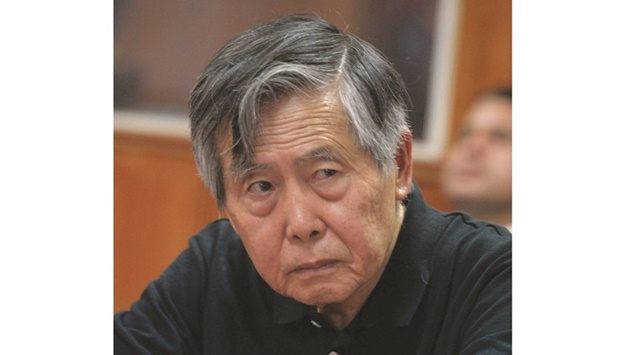The Inter-American Court of Human Rights (IACHR) has confirmed a ruling ordering Peru not to release jailed former president Alberto Fujimori, who was on the verge of leaving prison last month after a presidential pardon was reinstated.
The decision overrules Peru’s top local court, which had ruled on March 17 to allow Fujimori’s release.
The local court had reinstated a controversial 2017 presidential pardon for Fujimori on health concerns that had already once been overturned in part due to decisions issued by the Costa Rica-based IACHR.
The IACHR told Peru in late March to abstain from releasing Fujimori until the Court could review the matter.
The IACHR resolution, dated Thursday and published on Friday, said that Peru’s Constitutional Court decision had failed to give adequate weight to the right to justice of Fujimori’s victims.
“The State of Peru must refrain from implementing the sentence handed down by the Constitutional Court of Peru on March 17, 2022, which reinstates the effects of the pardon ‘for humanitarian reasons’ granted to Alberto Fujimori on 24 December 2017,” it said.
The new decision closes the door on Fujimori leaving prison for now.
Fujimori, 83, remains a highly polarising figure in Peru, which he governed between 1990 and 2000 before resigning in disgrace amid corruption scandals.
He is celebrated by some for having restored economic stability and defeating the brutal Shining Path Maoist guerrilla group.
However, he was also condemned for his violent methods, including using death squads and sending the military to shut down Congress and the judiciary in 1992.
Fujimori has since 2009 been serving a 25-year sentence for two massacres committed by army death squads during his presidency.
Twenty-five people, including a child, were killed in the supposed anti-terrorist operations in 1991 and 1992.
Peru is a member of the IACHR court and has in the past obeyed its rulings, which have the power to override any local order.
Peru’s current government has said it will obey any IACHR decisions.
Upon leaving office, Fujimori fled into exile in Japan, where his parents were from.
He was extradited back to Peru from Chile in 2007 and jailed, having been convicted in his absence.
Fujimori, who suffers ill health, is the only inmate at the small Barbadillo jail at the barracks of the special operations police in eastern Lima.
There he grows flowers, paints and receives family visits.
His family has submitted several petitions to have him released on health grounds but those were all rejected.
His daughter Keiko Fujimori, who has lost three presidential election run-offs, said last year that she would pardon her father if elected.
She was defeated in June by leftist Pedro Castillo and now faces prosecution over accusations of illegal campaign funding in her failed 2011 and 2016 presidential bids.

Former president Alberto Fujimori.
